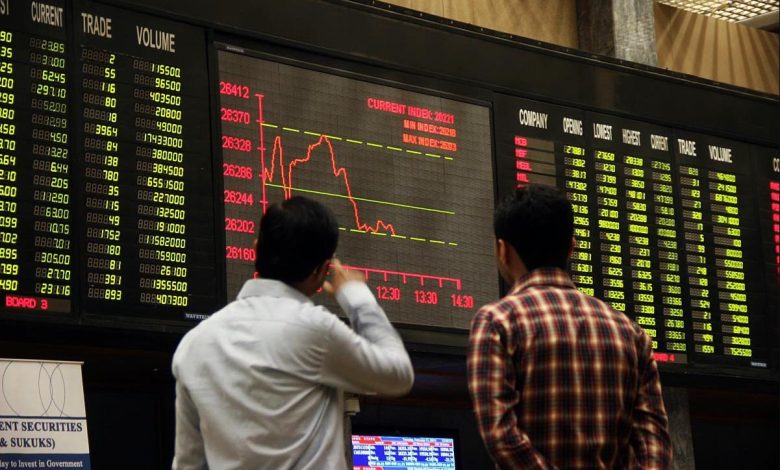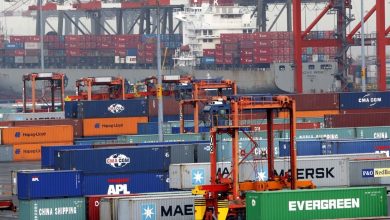Islamabad Stock Exchange Experiences Significant Decline
During the trading session, a total of 501,191,841 shares were exchanged

Karachi: On Monday, the Pakistan Stock Exchange (PSX) experienced a substantial drop, with the benchmark 100-index falling by 1,141.50 points, or 1.46%, to close at 77,084.49 points. This decline follows the previous trading day’s close at 78,225.98 points. The bearish trend is part of a broader pattern of volatility affecting the regional markets.
Trading Activity and Market Performance
During the trading session, a total of 501,191,841 shares were exchanged, a notable increase from the 443,483,358 shares traded the day before. The total market value of shares traded was Rs 21.057 billion, up from Rs 20.497 billion on the last trading day. Despite the higher trading volume, the market’s performance was marked by significant losses.
Company Performance
Out of 442 companies whose shares were traded, 129 saw an increase in share prices, while 261 experienced declines. The share prices of 52 companies remained unchanged, reflecting a high level of market uncertainty.
The top three trading companies in terms of share volume were:
- Kohinoor Spinning Mills: 86,045,086 shares traded at Rs 5.41 per share.
- Yousuf Weaving Mills: 32,793,243 shares traded at Rs 4.14 per share.
- WorldCall Telecom: 32,793,243 shares traded at Rs 1.21 per share.
Among the companies with notable gains, Ismail Industries Limited saw the largest increase, with its share price rising by Rs 66.98 to close at Rs 1,418.08. Khyber Textile Mills Limited also recorded a significant gain, with a rise of Rs 37.21 to close at Rs 410.08.
Conversely, the most considerable declines were observed in:
- Unilever Pakistan Foods Limited, which saw a drop of Rs 149.50 per share, closing at Rs 17,850.50.
- Sapphire Fibres Limited, which experienced a decrease of Rs 117.96, closing at Rs 1,480.10.
Market Context and Analysis
The sharp drop in the PSX index can be attributed to a range of factors, including macroeconomic uncertainties, geopolitical tensions, and domestic economic challenges. Analysts suggest that investor sentiment remains cautious amidst these concerns, impacting market stability.




